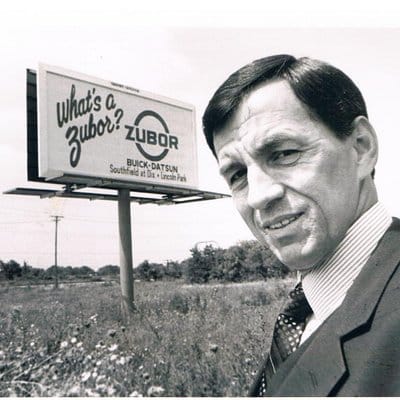Shame, but a different flavor.

It was the day before Thanksgiving when my two baby cousins (29 and 24) played with my four children in my grandparents’ living room in a Detroit suburb. My grandparents raised both of these particular cousins, which made it all the funnier when Bruce—the oldest—made a comment to my grandmother about how quickly the vibe in the house always changed whenever Grandpa came home from work.
Grandpa was born and raised in Detroit; his family had immigrated to Michigan from Hungary and his neighborhood was always a "Hungarian Neighborhood". Well after the demographics shifted in the 60s if you asked him. He always reminded me of Robert De Niro: stern, occasionally funny, and always looking slightly irritated. I knew what Bruce meant.
He was always a sharp contrast to my then-92-year-old grandmother, who had been in the Detroit metroplex since she was a 19-year-old girl—but still, seven decades later, carried a thick southern drawl. She had come North when she fled an abusive marriage in Virginia with her young daughter, staying with her brother who had moved up for work. As far as the vibe switch, she disagreed with Bruce’s comment and rejected all our claims to the contrary about grandpa.
My father stopped being a part of my life when I was four or five. My mother never remarried; she focused on her career and providing for my older brother and me. But the absence of a daily male role model was replaced by summers in Allen Park—and into adulthood with frequent mentorship from a remarkable man.
But let’s get back to the vibe.
Grandpa kept us active when I was younger. He played hockey into his 70s, ran 3–4 miles a day, and dragged his many, many grandkids on long bike rides or 3-mile walks to the dealership to pull weeds from the parking lot and along the fence line. Occasionally, we’d collect railroad spikes as we walked back along the train tracks, wishing we had brought gloves.
He’d regularly demonstrate that he could still put us in headlocks and toss us around the living room well into his 60s. I’m not sure if he stopped because he got older or because we all ended up bigger than him.
However present he was, however engaged, I always felt reserved around the man. I later found out many of his grandsons did. I’m pretty sure his sons did too.
From sneaking outside to figure out which cousin had a can of chew in the car at Christmas, to my uncle still not advertising that he occasionally drinks a beer—it wasn’t that Grandpa forbade things or laid down rules. He just… didn’t do them. Mainly because of his faith. But also because he just didn’t.
I heard stories of Catholic Grandpa—how fun he was in the late ’60s and early ’70s. Baptist Grandpa was still fun. He just didn’t have room in his home for drinking and shenanigans. The “vibe” Bruce mentioned has stuck been a thought in my head since that Thanksgiving, which turned out to be Grandma’s last.
I figured it out a year ago or so, I think. It’s not that we were ever afraid of him. He was the most fair man I’ve ever met. The reservation I felt—what Bruce and I failed to articulate to Grandma—was shame.
Not the kind of shame where I was ashamed of Grandpa. Quite the opposite. His role in my life is something I’ll always be incredibly proud of.
I go back to an exercise my brigade surgeon had me do during my first deployment. It was weird being ordered by a full-bird colonel to take an hour off shift and join a leadership training — I was younger and not in a designated leadership role.
One part of the training was a modified quadrant exercise: creating goals based upon 4 sections on the paper - professional, financial, spiritual, and personal. I couldn’t tell you anything I wrote down except for my personal goal. I don’t know where it came from, but I wrote:
“I want to be someone John Zubor would be proud of.”
That’s what came back to me when Bruce made his comment.
This shame I’ve felt around the man—it wasn’t fear he was ashamed of me. I know I’ve made decisions he didn't agree with. And I don't know that he's ever said it, but I’m confident he’s proud of me.
The shame is realizing that being near him always brought out this quiet voice in the back of my mind whispering, you could be better.
Not that I had to be. Not that he’d love me more. Not that I’d earn his approval. But that I could simply be better.
Having this monumental figure, whose very presence in a room reminds you of all the things you could be—but aren’t—is one of the most disorienting, profound experiences I’ve ever had.
The hardest-working, most generous, most good person I’ve known constantly reminded me—without saying a word—how much better I could be.
How much harder I could be working.
How much more time I could make for things that matter.
How much better of a son I could be.
How much better of a husband.
How much better of a father.
And I think the one he has said aloud often these last couple of years, how much more my relationship with the almighty should matter to me.